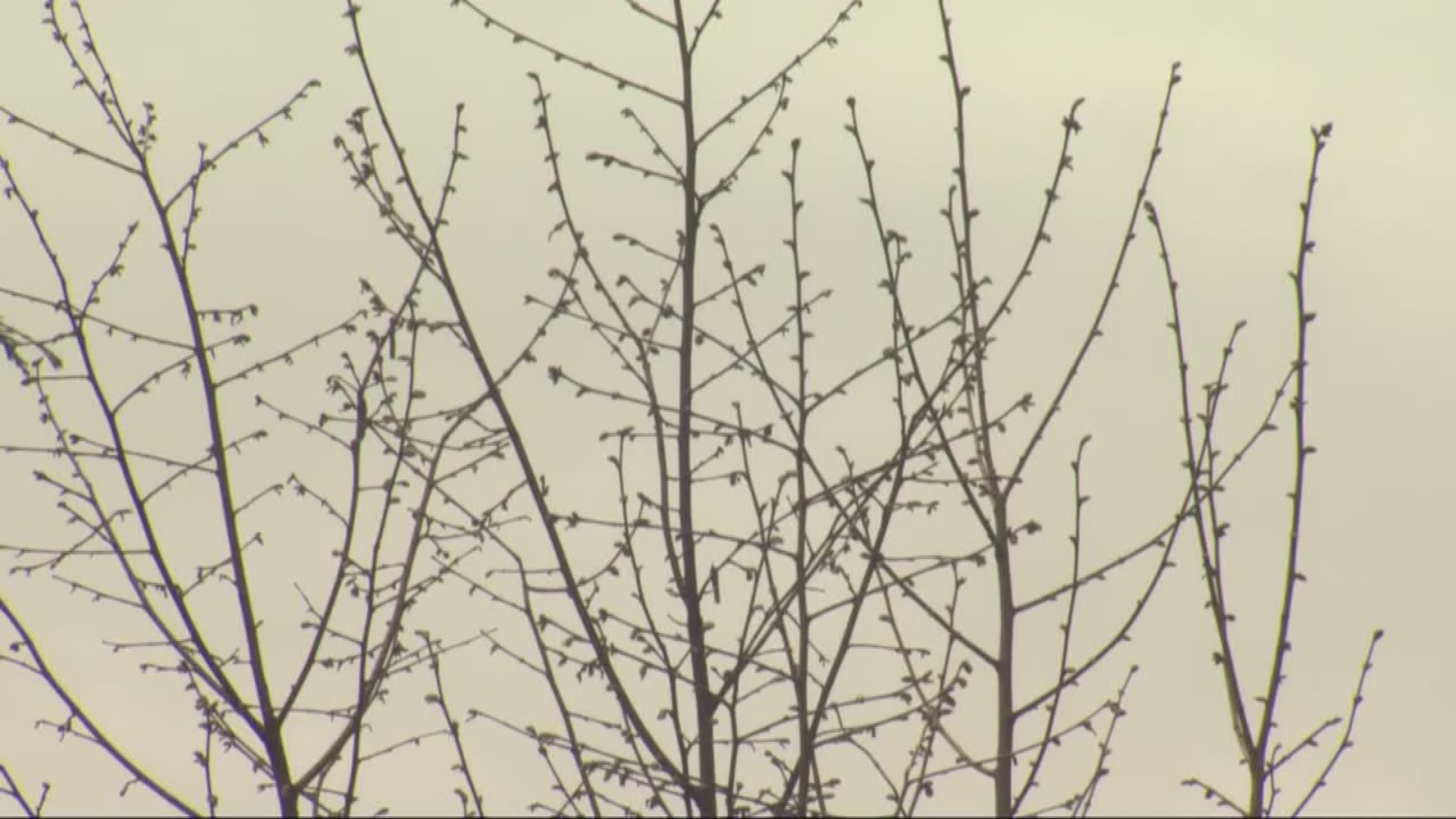PORTLAND, Ore. -- Oregon’s cold winter meant trees hung on to their pollen longer than during the last few winters.
But now, in late March, that is changing.
“By this weekend, if Saturday and Sunday looks to be nicer and warmer and sunnier and drier, that’s when the pollen levels will really increase,” said Dr. Barzin Khalili with the Allergy Clinic in downtown Portland.
He said the main culprits are Hazelnut, Birch and Alder trees, which use the wind to spread their pollen.
Some people are already noticing the impact.
“This eye is swelling up. It’s sore, it’s swollen, it's heavy. It feels like I have one eye asleep and that is allergies,” said Roya Amirsoleymani on the street outside Dr. Khalili’s office.
Even those who are not feeling the impact yet, know they are likely on the way.
“My face swells up a lot and it looks like I've been crying for hours and hours. My eyes turn bright red -- its awful,” said Kai Scott-Moncrieff.
He summed up the feelings of many. “It sucks!" I wish pollen wasn’t a thing but it’s just...reality,” he said.
Here are some tips from Dr. Khalili to help you through the spring allergy season.
First, don’t mistake a cold for an allergic reaction.
“The colds tend to last 7 to 10 days, they tend to be self-limited. But if you start seeing there’s a correlation with the onset of a pollen and symptoms lasting weeks to month or two then you know we're talking about allergies,” said Dr. Khalili.

If you know you have allergies, don’t wait until you notice symptoms to take over the counter medicine. It needs time to build up in your system.
“Over the counter nasal sprays, like Flonase and Rhinocort and Nasacort --they take a couple weeks of daily use to really start building up and becoming maximally effective,” Dr. Khalili said.
And don’t worry if you never had allergies but developed them once you moved to the Portland-Vancouver area. It’s a natural reaction by your body.
“Allergies or the tendency to develop allergies is a combination of your genetics and environment. And so, absolutely environment can play a role.
"If you are not allergic living somewhere else you can move in to this valley and after several years of exposure to the pollens for example in this valley, you can develop allergies to the tree pollen, to the grass pollen,” Dr. Khalili said.
And sometimes it takes a few years for the body to react.
“It takes several seasons of exposure to sort of ramp up the IGE or immunoglobulin E, which is the allergic antibody and then those allergic antibodies are ready and waiting so that when the third or fourth season comes along, they're already there, they can attack and people tend to have problems,” said Dr. Khalili.

